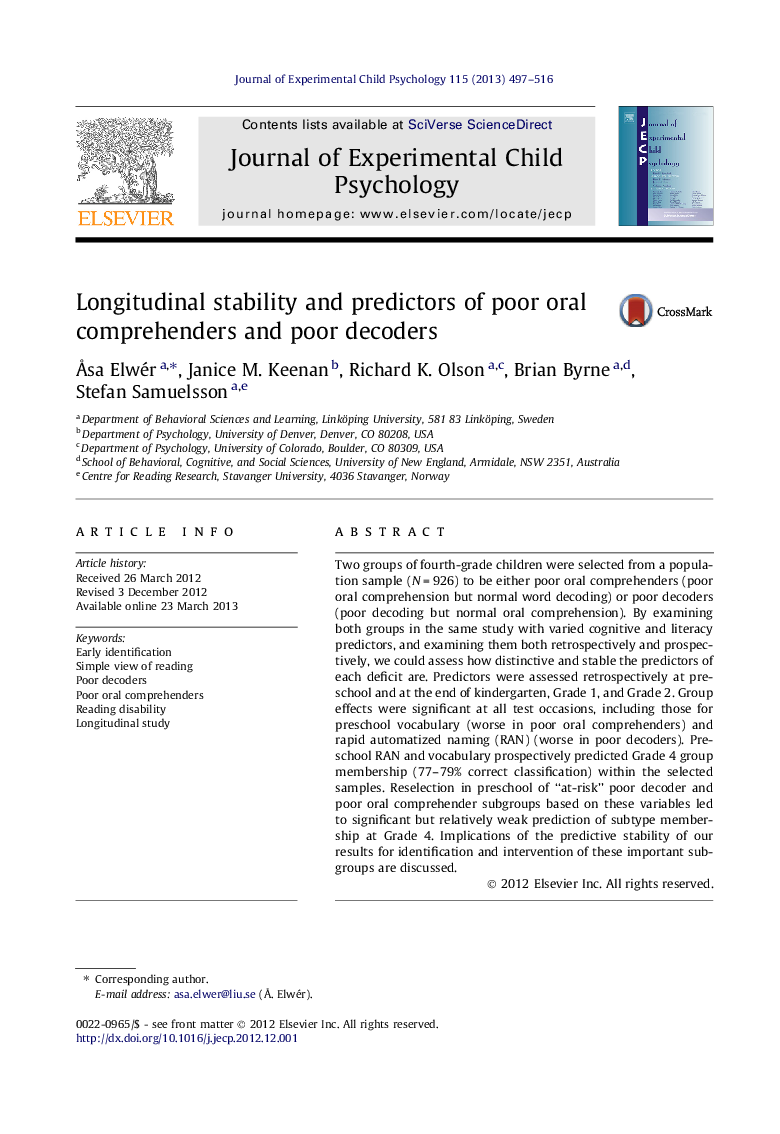| کد مقاله | کد نشریه | سال انتشار | مقاله انگلیسی | نسخه تمام متن |
|---|---|---|---|---|
| 918135 | 919454 | 2013 | 20 صفحه PDF | دانلود رایگان |

Two groups of fourth-grade children were selected from a population sample (N = 926) to be either poor oral comprehenders (poor oral comprehension but normal word decoding) or poor decoders (poor decoding but normal oral comprehension). By examining both groups in the same study with varied cognitive and literacy predictors, and examining them both retrospectively and prospectively, we could assess how distinctive and stable the predictors of each deficit are. Predictors were assessed retrospectively at preschool and at the end of kindergarten, Grade 1, and Grade 2. Group effects were significant at all test occasions, including those for preschool vocabulary (worse in poor oral comprehenders) and rapid automatized naming (RAN) (worse in poor decoders). Preschool RAN and vocabulary prospectively predicted Grade 4 group membership (77–79% correct classification) within the selected samples. Reselection in preschool of “at-risk” poor decoder and poor oral comprehender subgroups based on these variables led to significant but relatively weak prediction of subtype membership at Grade 4. Implications of the predictive stability of our results for identification and intervention of these important subgroups are discussed.
Journal: Journal of Experimental Child Psychology - Volume 115, Issue 3, July 2013, Pages 497–516